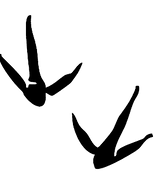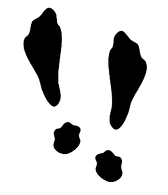Mi'gmaw Immersion
Entry Point is Nursery and runs to grade 4.
The goal of the program is: For students to understand Mi'gmaq culture, knowledge, customs and traditions. To know where they come from: connect with the land and our people. To be proud of who they are as Mi'gmaq people. To stop Mi'gmaq language loss and restore its use in the community. Employability, speakers of the Mi'gmaq language are in high demand due to the developing local economy in Listuguj and in the education, language and culture sectors.
Our Mi'gmaw Immersion classes in grades 2, 3 and 4 recently went to visit the Waqatasg Elders Home in Listuguj. Students met with the elders, read them stories and sang them songs in Mi'gmaw.
English
Entry Point is Nursery and runs to Grade 8.
Subjects include French, Mi’gmaq, English, Math, Social Studies, Life Skills, Physical Education, Science, Culture and Outdoor Education.
French Immersion
Available from grades 3 to 8.
The regular curriculum (Reading, Writing, Math, Social Studies, Science) is taught in French. The goal of the program is for students to move on to High School with the fundamental skills in French to succeed in speaking, writing and reading French as a second language.
Other subjects include Mi’gmaq, English, Life Skills, Physical Education, Culture, and Outdoor Education.

Nipugtugewei Kindergarten
"Outdoor education goes far beyond teaching a fixed curriculum with specific criteria and standards. In their time outdoors, children have the opportunity to develop a sense of self and community by connecting to culture, nature and language."
Outdoor schools and programs vary greatly according to the time spent outdoors, the alignment of the outdoors component, and how structured the outdoors component is. For example, the Nipugtugewei Kindergarten is embedded into the Kindergarten program rather than serving a complementary function, and it has a semi-structured outdoors component which is aligned with provincial curriculum objectives.
Outdoor schools (also called nature-based or forest schools) are rapidly growing in popularity in North America from their beginnings in Scandinavia in the 1980s. Proponents of these schools point to physical benefits like improved attention and motivation, better self-discipline, and increased respect for nature. There are also clear pedagogical benefits, such as improved collaborative and problem-solving skills (Children and Nature Network, 2012).
Most importantly, nature-based learning is what Indigenous peoples have always practiced. We have observed that the outdoors component of our classes allows us to more effectively incorporate cultural, spiritual, and traditional aspects of our Mi'gmaq ways, such as traditional stories and teachings of the elders, arts and crafts, traditional dancing, and ceremonies. By returning to the land, we can re-establish a connection between ourselves and the land and express our cultural heritage.
Come Speak With Us!
Joyce Germain
Teacher K5 Nipugtugewei Kindergarten Mi'gmaq
"I have been teaching Mi'gmaq Immersion at Alaqsite'w Gitpu School for over 20 years. I have developed programs for Kindergarten and Grade 1 Immersion (4-6 years old). I incorporated an outdoors nature-based component, called Nipugtugewei Kindergarten. In this model, mornings are spent in the classroom and afternoons are spent on the land. Both the in-class and outdoors components address provincial curriculum concepts in science, social studies, math, and language arts, as well as physical education. In the immersion program, all of these subject areas include language-related and cultural learning outcomes."
Brenda Germain
Teacher K5 Nipugtugewei Kindergarten Mi'gmaq
"I have been teaching for over 10 years. I have been fortunate enough through the years to be a part of a few early years (3-5 year old) curriculum building projects that have truly opened my eyes concerning the needs and wants of students and educators alike. I began my land-based education journey 4 years ago. I was teaching Kindergarten at the time and found that most of my day was spent trying to "control" the behavior of my class and a small amount of time was set aside for actual learning. I was motivated to create a program that would nurture the well being of my students and connect them (and myself) to our culture and language. Thus Nipugtugewei / Forrest Kindergarten was born. I joined forces with Joyce and each year we are able to develop different aspects of the program, focusing more and more on mental health, language learning and cultural traditions. All of this is achieved while meeting "mainstream" standards."

Grade 1
Gu'gu'gwes - owl

Grade 2
Wapus - Rabbit

Grade 5
Paqtism - wolf

Grade 6
Mui'n - Bear








